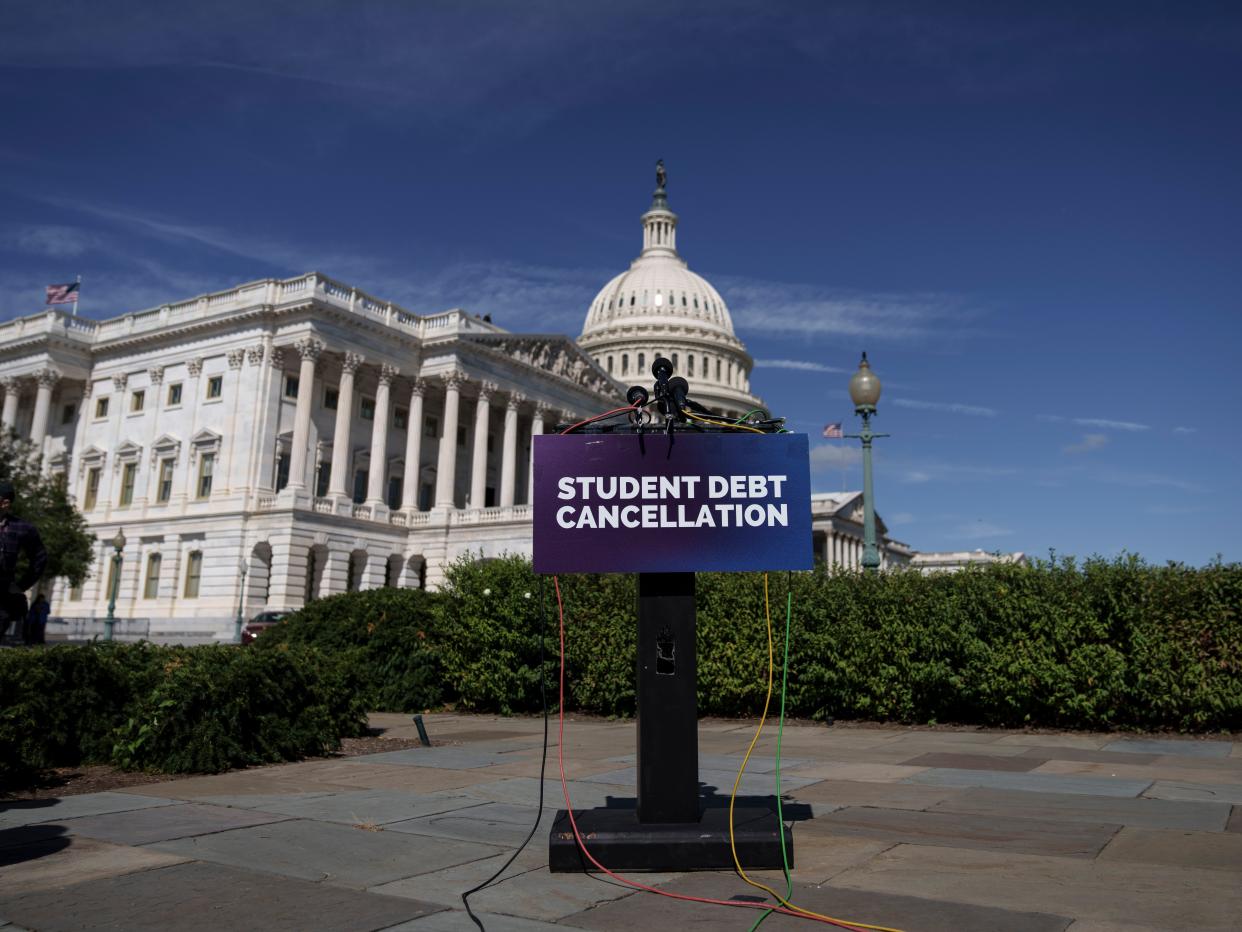Some critics of Biden's student-loan forgiveness say the relief will help rich people the most. New data suggests the exact opposite.

New Education Department data suggested Biden's student-debt relief would benefit the lowest earners the most.
It said that 81% of all applications received came from the bottom 80% of Congressional districts by average income.
Republicans have frequently argued that broad relief would go to the highest earners.
You've probably heard this argument before: student-loan forgiveness is regressive and benefits the highest earners.
Well, new data may undermine that idea.
The Education Department released new data on Friday providing the most detailed breakdown to date on how many student-loan borrowers would benefit from President Joe Biden's plan to cancel up to $20,000 in student debt for federal borrowers. The department last month said that before the application form for the relief closed due to conservative-backed lawsuits, 26 million borrowers had applied or were automatically deemed eligible, and 16 million of them were fully approved.
Now, the department has released data by Congressional district — and it gave a big hint that Biden's $125,000 income cap on the relief worked as intended, ensuring that it would benefit the borrowers who need it the most. Per the department, 81% of all applications came from the bottom 80% of districts based on average income, and the bottom 80% of those districts have more borrowers eligible for relief than the top 20%.
Additionally, according to a Politico analysis, 98% of the applications came from zip codes where per capita incomes were under $75,000, and more than half of the applications came from areas with per capita incomes under $35,000. Still, as Politico noted, it's impossible to get the precise income data on the individual borrowers who applied because the department did not collect all of that information in the process. It used data from the department, along with the US Census Bureau, to make those estimates.
But it's reasonable to say that Biden's relief would work as intended, targeting it to the lowest earners. Republican lawmakers and some experts have criticized relief for benefitting those who don't need it — for example, Republicans on the House education committee wrote on Twitter last year that "blanket loan forgiveness funnels money to borrowers LEAST IN NEED."
Biden himself was even worried early on his presidency that student-debt relief would benefit those who were high earners and attended Ivy League schools, and his income cap was intended to balance that concern. Still, advocates and Democratic lawmakers were pushing for him to make the relief more expansive without any thresholds. Minnesota Rep. Ilhan Omar urged Biden in a letter prior to his announcement that he should "follow the strong advice of experts and academics against including an income cap or other means-testing."
Now, all eyes are on the Supreme Court to see if those borrowers will end up actually getting relief. On February 28, the Court will hear oral arguments on the two conservative-backed lawsuits that have paused the implementation of Biden's plan, coming after a range of amicus briefs were filed to the Court either urging it to strike down the relief, or uphold it.
Included in those briefs was one from 128 House Republicans voicing opposition to Biden's plan. Alongside the new data from the Education Department, an analysis from advocacy group Student Borrower Protection Center found that nearly 12 million borrowers in all of those lawmakers' districts would stand to benefit from the relief.
Still, Republicans have continued to stress their view that debt relief is illegal, unfair, and costly, with a group of senators reintroducing a bill on Thursday to block the relief and resume student-loan payments.
"President Biden is unfairly transferring the burden from those who willingly took on loans to those who did not," GOP Sen. Bill Cassidy said in a statement. "There is no support for the man who didn't go to college but is paying off a work truck or the woman who responsibly paid off her student loans but is struggling with her mortgage."
Read the original article on Business Insider

